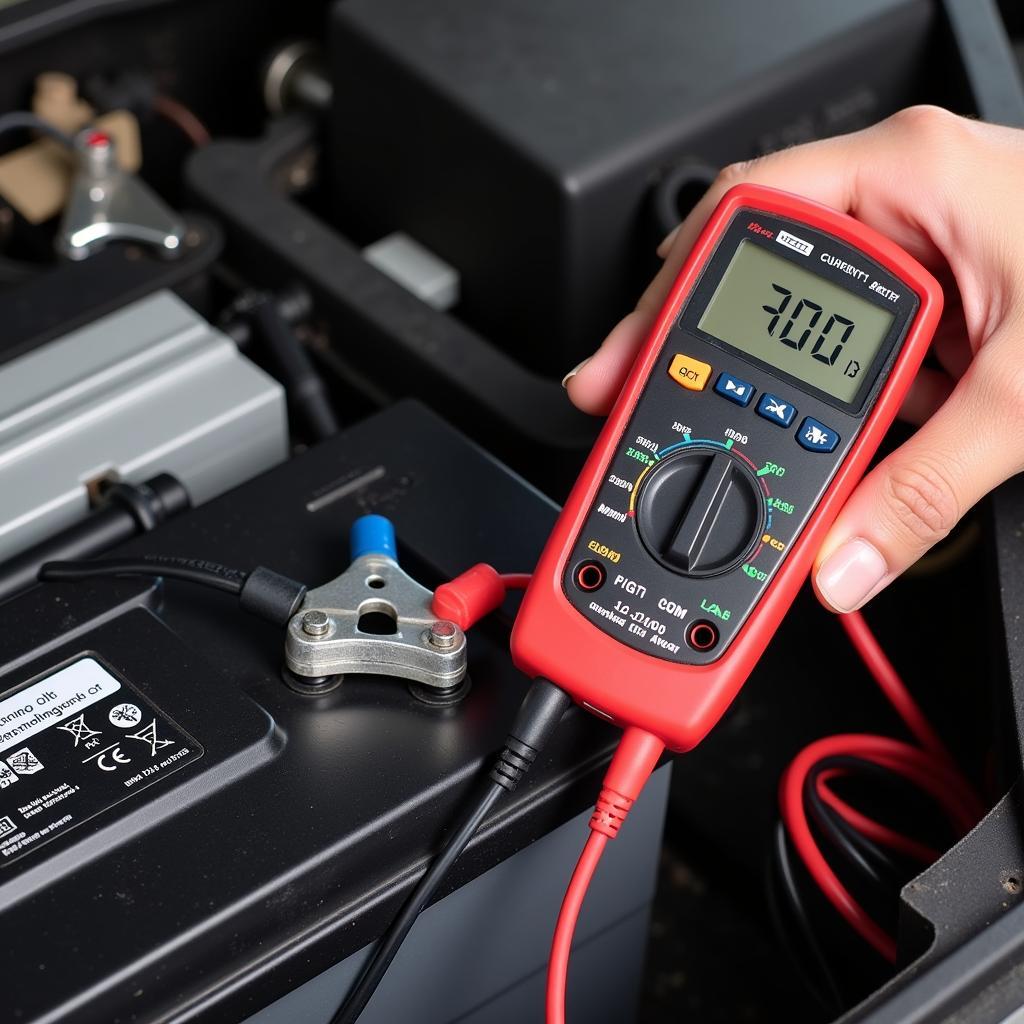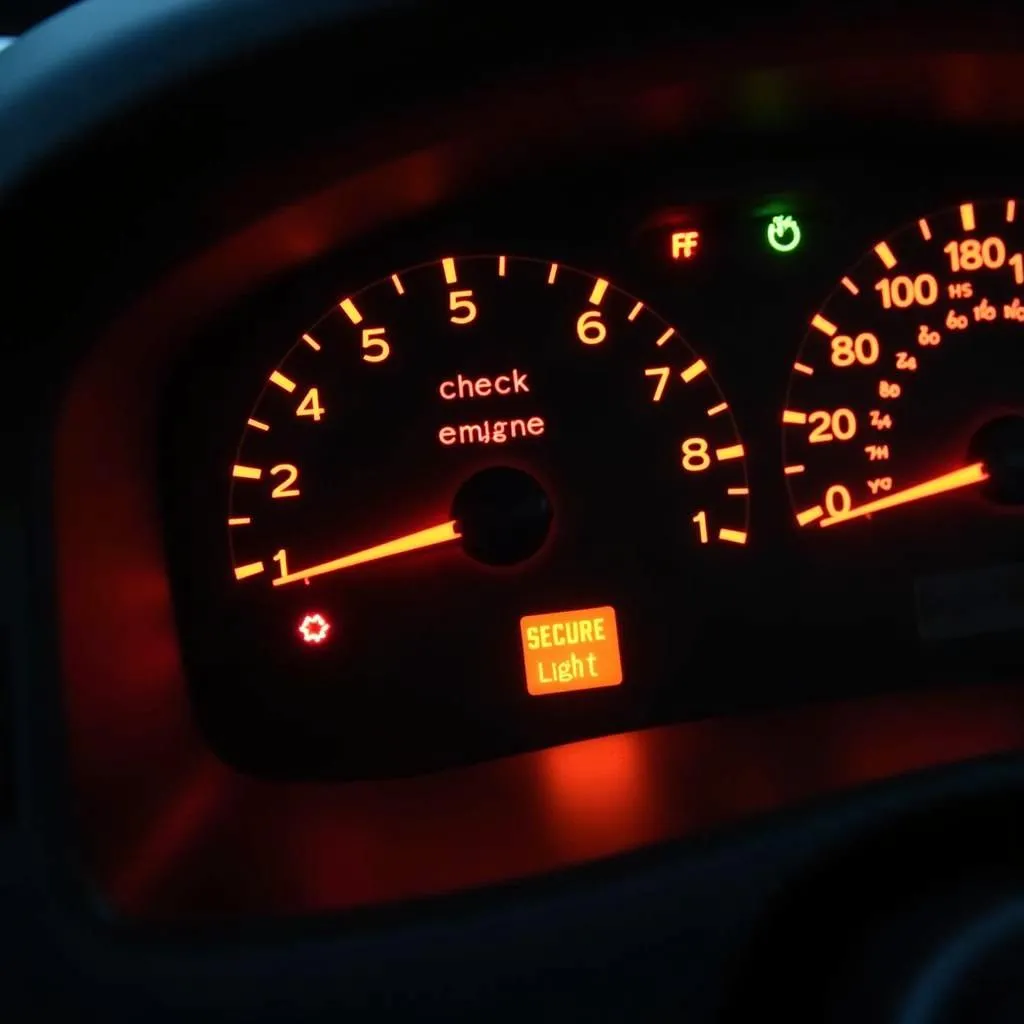Car batteries, the lifeblood of your vehicle, can sometimes mysteriously drain, leaving you stranded and frustrated. Understanding the causes for battery drain is crucial for preventing this inconvenient situation and ensuring your car starts reliably every time. This article delves into the various reasons behind battery drain, providing you with the knowledge to diagnose and address the issue effectively.
Common Culprits Behind Car Battery Drain
Several factors can contribute to a drained car battery, ranging from simple oversights to more complex electrical problems. Identifying the root cause is the first step towards a solution.
Parasitic Draw: The Silent Battery Killer
Parasitic draw refers to the continuous drain of electricity even when the car is off. This can be caused by faulty components, aftermarket accessories, or even interior lights left on. A small drain over time can completely deplete your battery. To diagnose a parasitic draw, you’ll need a multimeter to measure the current flow with the ignition off.  Parasitic Draw Test using Multimeter
Parasitic Draw Test using Multimeter
Failing Alternator: The Power Generation Problem
The alternator is responsible for recharging the battery while the engine is running. A failing alternator won’t effectively recharge the battery, leading to a gradual drain and eventual failure. Symptoms of a bad alternator include dimming headlights, flickering dashboard lights, and strange noises from the engine compartment.
Extreme Temperatures: The Environmental Impact
Extreme temperatures, both hot and cold, can significantly impact battery performance. Heat can accelerate the chemical reactions within the battery, leading to faster discharge. Cold temperatures, on the other hand, can reduce the battery’s capacity to hold a charge.
Old Age: The Inevitable Decline
Like any component, car batteries have a limited lifespan. Typically, a car battery lasts between three to five years. As the battery ages, its ability to hold a charge diminishes, making it more susceptible to draining.
How to Prevent Battery Drain: Proactive Measures
Preventing battery drain is often easier than dealing with the consequences. Here are some proactive steps you can take:
- Regularly inspect your battery: Look for corrosion on the terminals and cracks in the casing.
- Turn off all lights and accessories: Ensure everything is off before exiting your vehicle.
- Limit short trips: Short trips don’t give the alternator enough time to fully recharge the battery.
- Have your battery tested: A professional battery test can identify potential issues before they become major problems.
- Keep your car in a garage: This can help protect the battery from extreme temperatures.
“Regular maintenance is key to preventing battery drain. A simple check-up can save you a lot of trouble down the road,” advises John Smith, Senior Automotive Electrical Engineer at AutoTech Solutions.
Diagnosing and Addressing Battery Drain: A Step-by-Step Guide
If you suspect your battery is draining, here’s how to diagnose and address the issue:
- Check for obvious causes: Ensure all lights and accessories are off.
- Test the battery voltage: Use a multimeter to measure the battery voltage.
- Test the alternator: Have the alternator tested by a mechanic.
- Check for parasitic draw: Use a multimeter to measure current flow with the ignition off.
- Address the underlying cause: Replace any faulty components or address any electrical issues.
“Don’t underestimate the impact of a seemingly small parasitic draw. Over time, it can completely drain your battery and leave you stranded,” cautions Sarah Johnson, Lead Electrical Systems Diagnostician at CarCare Diagnostics.
Conclusion: Staying Ahead of Battery Drain
Understanding the causes for battery drain empowers you to take preventative measures and address any issues promptly. By following the tips and guidelines outlined in this article, you can ensure your car battery remains healthy and reliable, avoiding the frustration and inconvenience of a dead battery. Regular maintenance and prompt attention to any signs of trouble are crucial for staying ahead of battery drain and keeping your vehicle running smoothly.
FAQ: Frequently Asked Questions About Battery Drain
- How long does a car battery typically last? Most car batteries last between three to five years.
- What are the signs of a failing alternator? Dimming headlights, flickering dashboard lights, and strange noises from the engine compartment are common signs.
- How can I test my car battery? You can use a multimeter to measure the battery voltage.
- What is a parasitic draw? A parasitic draw is a continuous drain of electricity even when the car is off.
- How can I prevent battery drain? Turn off all lights and accessories, limit short trips, and have your battery tested regularly.
- Can extreme temperatures affect my car battery? Yes, both hot and cold temperatures can impact battery performance.
- What should I do if my battery keeps draining? Have your car checked by a qualified mechanic to diagnose and address the underlying issue.


